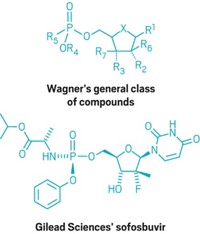Advertisement
Grab your lab coat. Let's get started
Welcome!
Welcome!
Create an account below to get 6 C&EN articles per month, receive newsletters and more - all free.
It seems this is your first time logging in online. Please enter the following information to continue.
As an ACS member you automatically get access to this site. All we need is few more details to create your reading experience.
Not you? Sign in with a different account.
Not you? Sign in with a different account.
ERROR 1
ERROR 1
ERROR 2
ERROR 2
ERROR 2
ERROR 2
ERROR 2
Password and Confirm password must match.
If you have an ACS member number, please enter it here so we can link this account to your membership. (optional)
ERROR 2
ACS values your privacy. By submitting your information, you are gaining access to C&EN and subscribing to our weekly newsletter. We use the information you provide to make your reading experience better, and we will never sell your data to third party members.
Business
Children’s Medical Center In Boston Sues Celgene
Litigation: Center claims pharmaceutical company owes it millions of dollars in royalties
by Alexander H. Tullo
January 9, 2014
| A version of this story appeared in
Volume 92, Issue 2
A case wending its way through U.S. District Court in Massachusetts highlights how research alliances between pharmaceutical companies and academia can turn sour. Children’s Medical Center is suing Celgene Corp. over amino thalidomide-based drugs used to treat cancer.
Children’s Medical Center runs Boston Children’s Hospital, a 395-bed pediatric hospital that functions as one of Harvard Medical School’s teaching hospitals. With 1,100 scientists, Boston Children’s calls itself the “world’s largest research enterprise based at a pediatric hospital.”
Celgene markets Revlimid and Pomalyst, amino thalidomide drugs used to treat multiple myeloma. About 70% of Celgene’s $5.5 billion in 2012 sales came from Revlimid.
The dispute is over royalties. In 2002, Children’s Medical and Celgene signed a license agreement regarding the hospital’s intellectual property for amino thalidomide. Celgene agreed to pay the hospital a 2.5% royalty on sales of amino thalidomide products as well as a 1.0% royalty on drugs containing the active ingredient in Revlimid.
On March 1, 2013, the agreement’s end date, the royalty payments stopped. In its complaint filed in court, Children’s Medical says the payments ought to have continued because Celgene won a patent extension for Revlimid through 2019. The hospital says the royalty payments it is due in the first quarter of 2013 alone amount to about $3 million.
Celgene counters that it owes the hospital nothing. The patent that was extended, U.S. Patent No. 5,635,517, is its own, Celgene says. Children’s Medical never owned the patent, the company says, and thus it is not relevant to the agreement.
A court date for the case has yet to be set.



Join the conversation
Contact the reporter
Submit a Letter to the Editor for publication
Engage with us on Twitter